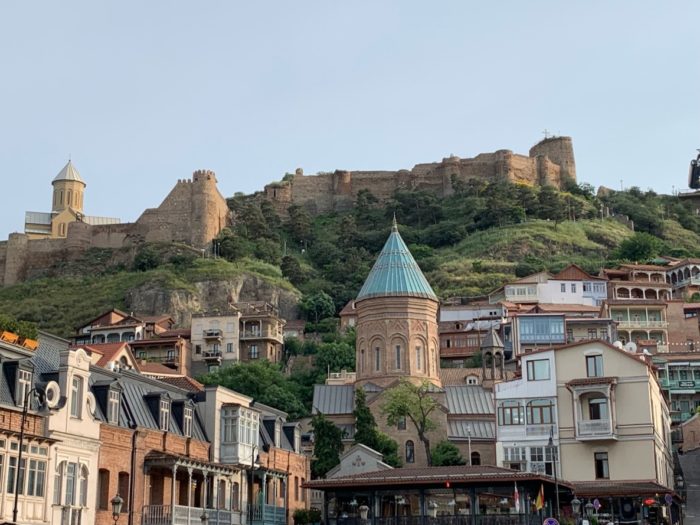The last field trip took place in Georgia at the beginning of June. Georgia boasts a business friendly environment, accounting for one of the highest GDP growth rates in the region. However, unemployment and poverty levels remain high and a large share of the population is still lacking access to formal financial services.
BlueOrchard opened their Tbilisi office in 2013. Today, the office covers BlueOrchard’s engagement in the Middle East, Eastern Europe, the Caucasus and Central Asia. Through its activities, BlueOrchard has developed a strong network in Georgia as well as a good understanding of its investing environment.
Daniel Perroud, our Global Head of Business Development, who took part in the field trip, shared with us his daily impressions of this unforgettable experience.
Day 1
Our diverse group of participants travelling from Europe and Asia were welcomed in Tbilisi by BlueOrchard’s Chairman, Peter Fanconi, who started with an introduction to impact investing and presented the program of the trip. Afterwards, our Chief Credit Officer, Normunds Mizis, our Regional Manager, Sevara Mukhamet-Alieva, and our Head of Operations, Sascha Ternes, provided us with some key information about Georgia and BlueOrchard’s activities in the region. The first day concluded with a welcome dinner at a local restaurant where we had the pleasure to try many traditional Georgian dishes.
Day 2
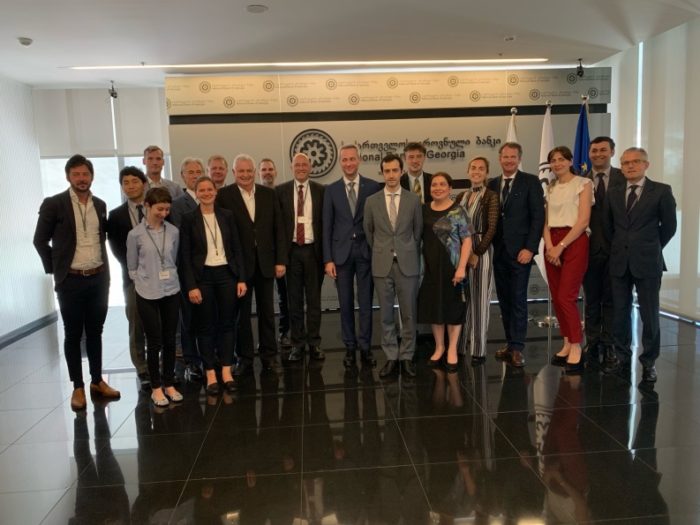
On the second day, we went to the Georgian National Bank where we were welcomed by the deputy governor, Mr. Papuna Lezhava. He gave us an overview of Georgia’s macro-economic environment and explained the country’s banking and microfinance sector in more details. He underlined the resilience of the Georgian economy over the last 10 years despite crises such as the war with Russia in 2008, the European debt crisis in 2012 and the USD appreciation in 2015. He also emphasized that the Georgian banking sector is sound and profitable with strong growth potential. The main challenges remain the underdeveloped stock market and the concentration of power with the two largest banks owning 70% of the banking assets. The deputy governor also provided us with an overview of the microfinance sector which is composed of 61 institutions.
We then went on a guided tour of the City Hall of Tbilisi, which is one of the most modern City Halls worldwide. It is efficiently structured, customer-friendly, even offers a drive-in service and serves approx. 10’000 clients per day with a time of less than 5 minutes each! Later on, we had the pleasure to have Mr. Patric Franzen, the Swiss Ambassador to Georgia join us for lunch. He gave us an insightful geopolitical view on Georgia, highlighting the strong potential for tourism and agriculture.
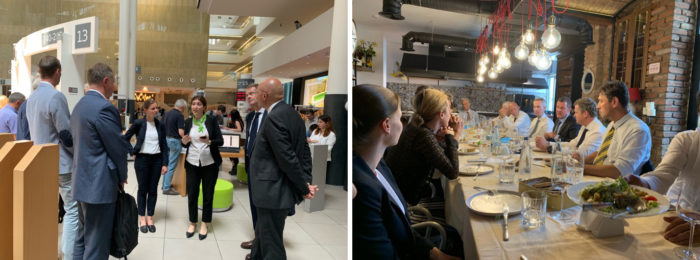
In the afternoon, we met with Mr. Yuri Lebanidze, the Chairman and Mr. Besik Shengelia, the Executive Director of the Georgian Microfinance Association, at the BlueOrchard Tbilisi office. The Georgian Microfinance Association was founded 10 years ago and is currently comprised of 20 MFIs and 2 banks. It is actively engaging with the Georgian National Bank, especially with regards to new regulations in consumer protection, which will help to further increase the protection of borrowers.
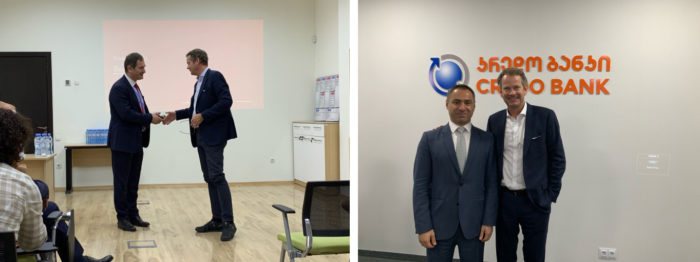
The last meeting of the day took place at CREDO Bank where we were welcomed by the CEO Zaal Pirtskhelava. CREDO is the leading bank with a focus on microfinance in Georgia, with over USD 300m in assets under management, 2’100 employees and 68 branches across the country. Its mission is to provide sustainable financial services to micro, small and medium businesses with a preference for rural activities that create employment opportunities. The CEO also presented CREDO’s new products which include bank guarantees, loans for health insurances, full banking services for SME clients and digital banking.
Day 3
Our next meeting took place at Crystal, a Microfinance Institution headquartered in Kutaisi, where we were welcomed by the Chairman of the Supervisory Board, Archil Bakuradze. He gave us a macro-economic picture of Georgia but also touched upon the local regulatory environment for microfinance. Overall, Crystal aims to provide a platform to defeat poverty, promote entrepreneurship and foster development. Today, Crystal has over USD 109m in assets, employs over 1’000 individuals and serves approximately 100’000 active borrowers.
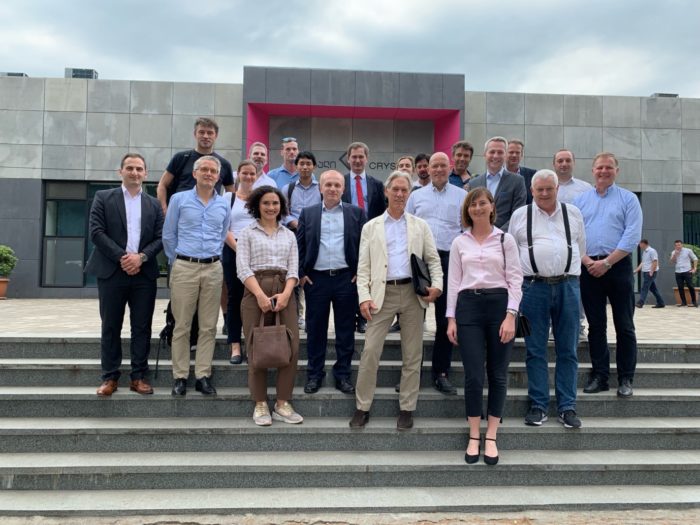
For the last visit of the day, we met with Aluda Putkaradze, a micro entrepreneur who runs a tailoring business and manages a costume shop together with his wife. Mr. Putkaradze has received a loan of USD 49’000 from CREDO Bank to buy and renovate commercial property. He also invested some of the money in a cottage he rents to tourists. He took his first loan of USD 500 about 10 years ago to open a souvenir shop. Today, he runs several successful businesses and employs 12 people.
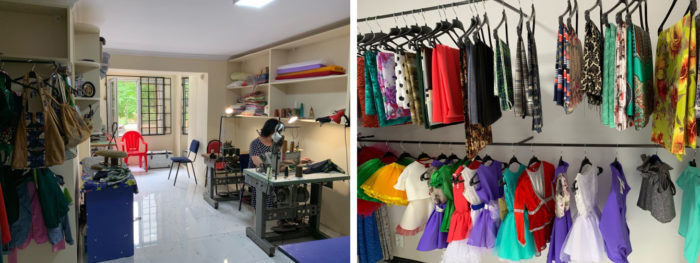
Day 4
On the fourth morning, we visited Jemal Bigvava, a Crystal micro entrepreneur who produces and distributes medicinal plants and fruits. Mr. Bigvava has been a client of Crystal for more than 15 years. When Mr. Bigvava started his business, he was renting everything, from real estate to equipment. Today, not only does he own equipment and property, but he also employs 10 people. Furthermore, he is planning to expand his business by building a greenhouse.
We then visited Vladimer Qarqashadze, another client of Crystal who works at a furniture workshop where he makes sketches and produces materials. His secondary activity consists of creating handmade bags using wood and leather. He has also established a small guesthouse in Kutaisi which currently consists of two cottages that he built using his loan from Crystal. Given the growth in tourism and the opening of a local airport, Mr. Qarqashadze is very optimistic that the cottage will attract plenty of guests.
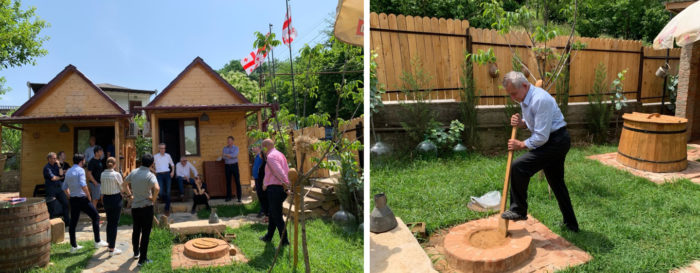
For the last meeting of our trip, we visited Gia Tsetskhladze in Kobuleti, an entrepreneur who operates a greenhouse where he grows strawberries, tangerines and grapes. On top of that he is also a winemaker and produces vodka and honey. He recently opened a shop to sell his agricultural products as well as equipment. His next goal is to open a cellar, in traditional Georgian design, to show the whole process of wine making to tourists. He is also planning to start a bakery in which he will prepare and sell traditional bread. Full of new ideas, Mr. Tsetskhladze was an inspiring entrepreneur and a perfect final client to visit.
Conclusion
Thanks to BlueOrchard and our local partners, this field trip was a truly unique and inspiring experience. It provided the participants with a clear view of BlueOrchard’s investment activities and work in Georgia, but it was mainly about people. It was great to see the actual impact of microfinance on people’s lives and to be able to have a conversation with end-clients and regulators in order to ask them all of our questions. This trip has definitely further strengthened my motivation to make an impact through my work at BlueOrchard.
By Daniel Perroud
